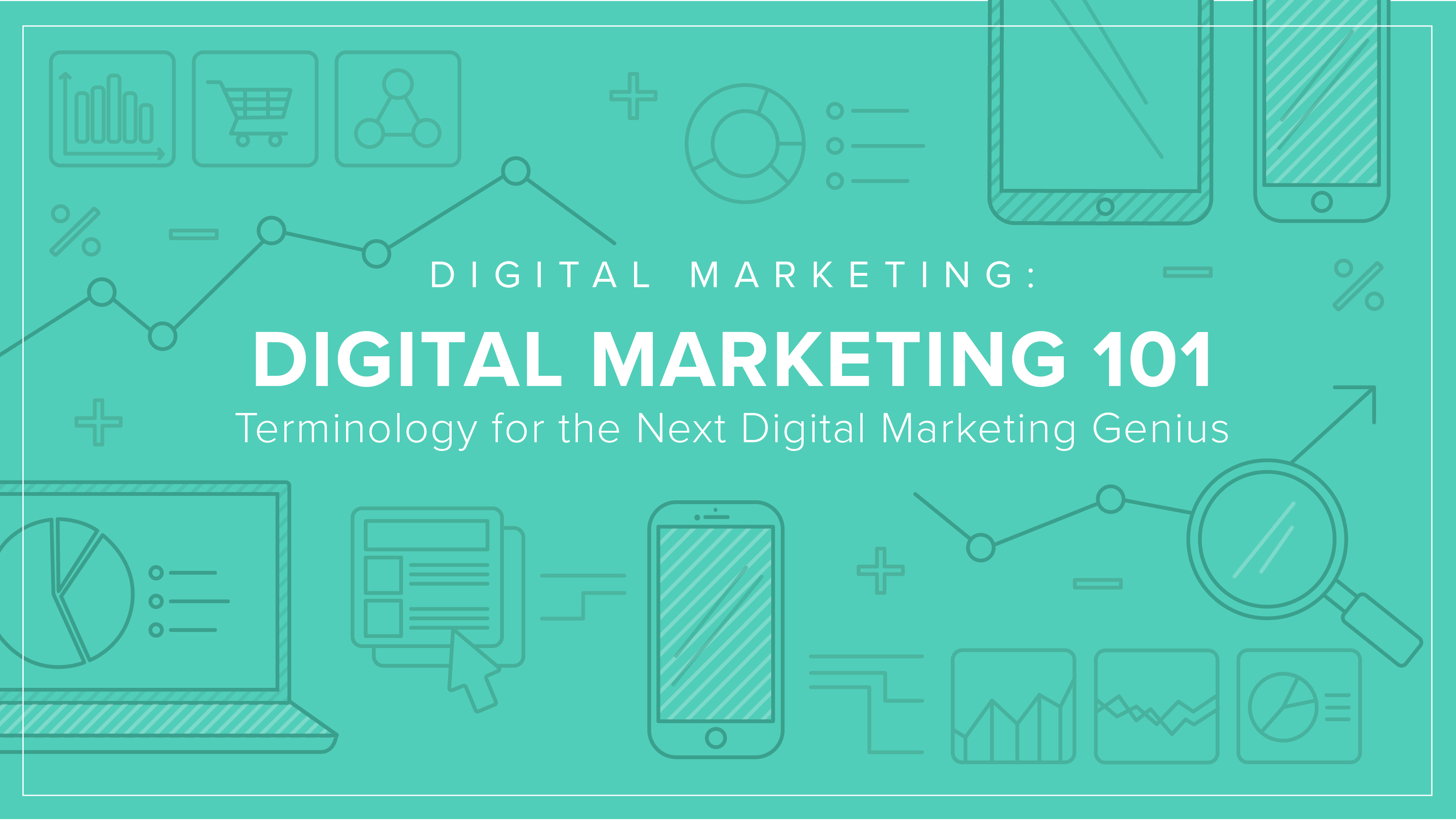Search Ads and AdWords and shopping carts, oh my! If you know your way around the internet, you’ve probably run into a fair share of these terms. But what do they mean? And what impact do they have on your business? Square 205 is here to lay it down in layman’s terms.
At this point, online marketing is so necessary for advertisers that even the most traditional agencies and companies simply can’t afford to ignore it. As technology advances and techniques change, it becomes crucial for advertisers to embrace new ways of reaching their consumer base–or risk being left behind.

What is Digital Marketing?
As there are many different sorts of digital media, there are many sorts of digital marketing. Any advertisement you’ve seen on the Internet, mobile phone, games, display advertising or paid content all fall under the umbrella of digital marketing. Simply put, it is the marketing of products or services using digital channels to reach consumers instead of through traditional or physical means. This doesn’t just pertain to adverts, either—general digital marketing can be used for social media, email, websites, and many more touchpoints with consumers.
Let’s start with the four integral terms for any business owner, marketing manager, or introductory-level intern to know before diving into the digital marketing realm. The following terms are the basic building blocks of online marketing, and beneath the surface involve many more categories needing to be understood to prevail in creating a successful online presence.

SEO
Search Engine Optimization, or SEO, is a form of Internet marketing involving the promotion of websites by improving their placement, and thus their visibility, in Internet search result pages. This is particularly important, as the vast majority of internet users don’t go past the first page or two of search results when looking for an item or service. Usually, they simply assume the search engine will give them the best available choices. Through careful use of Search Engine Optimization, you can ensure your product will be the first legitimate website an Internet user sees when searching for a product, term, local results, and more.
E-Commerce
This can be simply explained as the sale and purchase of goods and services through the Internet. Long story short: commerce handled by electronic means. From internet giants like Amazon and eBay, to the smallest merchant hoping to sell some handmade crafts, if you’re in business and hoping to sell something either directly to customers or other businesses, this will likely make up a decent chunk of what you’re doing online
The Google Shopping Network is a great example of e-commerce in action. It is a Google service allowing users to search for products and compare prices between different vendors. As Google is by far the most popular search platform, product visibility from searches on Google platforms can be crucial in determining online success.

PPC
Pay per Click, or PPC, refers to a specific sort of digital advertising model where an advertiser only pays for an ad when said ad is clicked. This is one of the purest forms of measuring the effectiveness of advertising because you’re only paying for the customers who see your advertisement and actively choose to engage with it. This is a good way of testing the waters with a riskier advertisement; if it ends up floundering, you don’t have the same level of financial investment in a failing campaign, and if it’s successful, you still have the ability to support it and move into more traditional avenues as well.
Closely connected with PPC, Search Ads are a form of advertisement using search engine keywords in order to connect to users who are looking for a specific product or service. This can be useful for a number of reasons, most practically to ensure the first thing a consumer sees when searching for a term is your product. When a customer is in a mindset to make a purchase or seek something out, often the first impression they get can take on increased importance.
It is also something you have to keep an eye on your competitors for as well. Domino’s Pizza famously uses search ads to appear on top of the Google search result page for Pizza Hut. Very clever from Domino’s perspective, but not so great for Pizza Hut.

ROI
Return on Investment, or ROI, is a well-known concept outside of digital marketing circles as well. ROI is simply a measure used to determine the efficiency of an investment or compare an investment with others of a similar amount, regarding the amount of return it generates. In digital marketing, you can record the number of views, click throughs, and purchases made in an easily accessible manner. If you have all the variables, calculating ROI can become akin to a fairly simple math problem.
Are You the Next Digital Marketing Genius?
Here’s the bottom line: approaching online marketing with a clear plan is important, as it’s different than traditional methods of advertising and marketing. The successful catchy jingle on the radio is often muted, the full-screen video is ultimately dismissed as an annoyance, and the great image in print is now scrolled right on by without another thought. Marketers have to adapt to survive. If you’re approaching online advertising without a clear plan it can be a frustrating waste of time and money, especially as there are so many new terms being thrown around to greatly influence success.
By keeping these four essential terms in mind, you should be able to take a wider view of the digital marketing landscape and have a basic understanding of some of the options available to you. Now more than ever, online marketing has created more ways for businesses to flourish—all it takes is a little elbow grease and knowledge of the field to determine success. When done well, digital marketing can help your business achieve its goals.
Is it time you took the next step to find out what you can do to grow your brand online?

